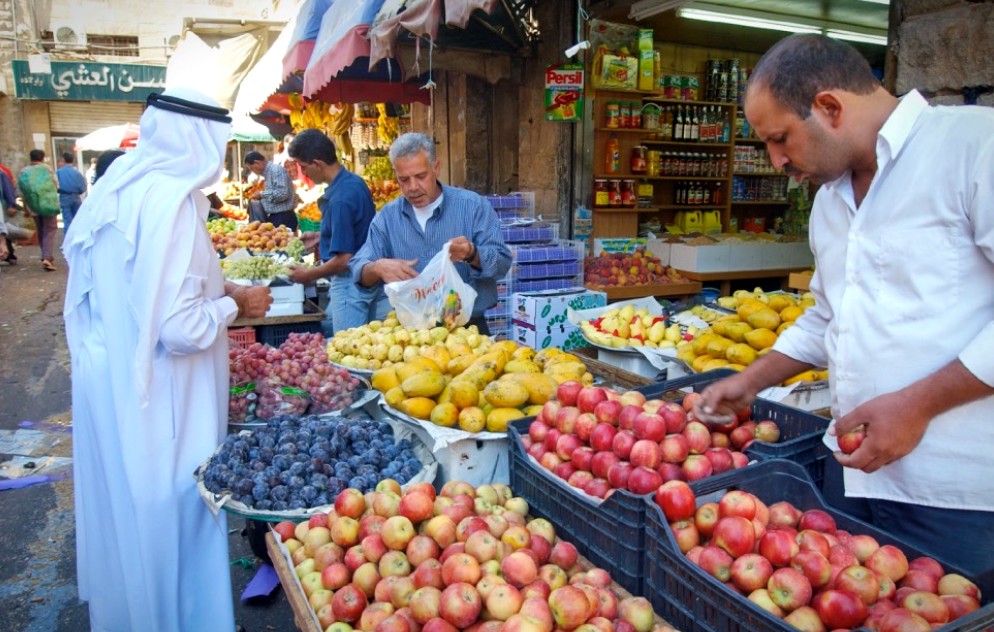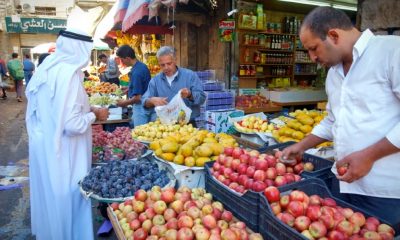Fellowships
Call for Applications: UNAOC Young Peacebuilders

The United Nations Alliance of Civilizations (UNAOC) has launched the Call for Applications for the 2019 edition of its Young Peacebuilders programme, aiming to tackle violent extremism by building inclusive societies with understanding and respect among cultural and religious communities.
- Are you between 18 and 25 years old? (born on or between December 16, 1993, and May 21, 2001)
- Are you a citizen of a MENA country (Algeria, Bahrain, Djibouti, Egypt, Iran (the Islamic Republic of), Israel, Iraq,
- Jordan, Kuwait, Lebanon, Libya, Morocco, Oman, Qatar, Saudi Arabia, State of Palestine, Syrian Arab Republic,
- Tunisia, United Arab Emirates, Yemen) AND do you currently live in this region?
- Are you interested in taking part in an intercultural learning experience with other young people from MENA and improve your actions to promote peace?
- Are you part of a youth-led organization, network or initiative?
- Do you want to increase your ability to contribute to peace and social inclusion in your community, country, and region?
- Are you in the beginning stages of your involvement in this type of work and want to learn more?
If yes, apply now for a chance to be selected for a fully funded participation.
Deadline is 23 February 2019 11:59 PM Eastern Daylight Time (New York).

Blog
Sustainable Development Workshop by the Hollings Center for International Dialogue

The issues raised by the Youth, Social Entrepreneurship and Sustainable Development project have taken on even greater significance with the spread of the Covid-19 pandemic. Economies around the world are contracting and youth, who were already experiencing financial difficulties prior to the pandemic, face even more uncertain employment and career prospects for the foreseeable future. The question this project posed remains highly relevant: what role can social entrepreneurship play in addressing the material, social and individual emotional needs of youth, especially in non-Western countries?
Due to the current health crisis, the project’s workshop at the Hollings Center, originally scheduled for May 2020, had to be cancelled. In its place, the YSESD proposes to hold a three part online workshop during the fall of 2020. The workshop will be divided into: 1) a project competition in social entrepreneurship; 2) youth social entrepreneurial projects; and 3) workshop assessment. The YSESD will engage in post-workshop dissemination of its results.
The project proposes to invite 40 youth social entrepreneurs from the Middle East and North Africa (MENA) region and Pakistan as well as students from the Honors College, Rutgers University who will serve as Rapporteurs.
The target countries include Iraq, Turkey, Pakistan, Egypt and the United Arab Emirates.
In addition to YSESD Director and PI, Dr. Eric Davis, Rutgers University, and the workshop co-organizers, Dr. Yass Alkafaji, Director Iraq Public Leadership Program, the American University of Sharjah; Dr. Nirav Patel, Director of the Forum, the Honors College, Rutgers University; Dr. Peter Valenti, Liaison to Social Entrepreneurship Studies, New York University and New York University-Abu Dhabi; Dr. Abid Ali, Data Science Program Faculty, Northwestern University; Mr. Berat Kjamilli, migport.com – Refugee Knowledge Sharing Platform, Istanbul; and Mr. Yousuf Abdelfatah, RAND
Corporation, Arlington, VA.
The co-organizers will assist in recruiting youth social entrepreneurs from the workshop’s regions of focus: Iraq, Turkey, Pakistan and Egypt.
Project Competition Module:
The first component of the workshop will offer a Project Competition Module in mid-November 2020. As part of the Module, Dr. Davis and the Workshop co-organizers will ask the 40 participants to address critical issues facing developing countries by engaging in a competition to come up with solutions to critical questions posed by the offer presentations on YSESD project themes.
The competition will ask 8 participant teams of 5 members each – comprised of males and females and members of different national origins – to develop social entrepreneurial ventures which will address several key content areas:
1). Energy and Electricity Delivery (how can electricity be delivered in a more effective manner through social entrepreneurial ventures, how can such ventures improve the development of solar energy projects for residential and commercial usage);
2). Civic Engagement (how can social entrepreneurship help develop secondary and university level curricula which promotes a better understanding of citizenship responsibilities and rights, democracy promotion, and cultural and religious tolerance); public institutional capacity (strengthening the rule of law, human rights and fighting corruption and nepotism);
3). Gender Empowerment (changing societal attitudes towards women’s participation in the public sphere, improving the women’s ability to translate higher education degrees into career opportunities, and promoting child-care centers which allow women to pursue their careers);
4). Public Health (how can survey research improve knowledge of the public health needs of Iraq’s poor urban neighborhoods and villages, how can knowledge of vaccinations and other critical medical procedures be better disseminated, how can the expansion of health care clinics be linked to social entrepreneurship);
5). Environmental Sustainability (how can recycling be expanded to deal with better disposal or refuse and offer funds to poor communities, how can residents in poorer communities be helped to better access to clean water and improve local health conditions, how can social entrepreneurial ventures build on traditional methods of environmental sustainability to promote greater consciousness of the need to protect local environments).
In “breakout rooms,” each team will be given 30 minutes to develop their project ideas. Then, Workshop will discuss and evaluate the content of the proposals as to their originality and possibility of implementation. This project competition will not only engage the Workshop participants but enable the teams to decide on which of the 5 content areas they would like to concentrate in the second session of the Workshop in early December.
(Proposed dates of Workshop Session 1: November 12-13)
Youth Social Entrepreneurial Projects:
The Workshop’s Project Competition presentations will offer both substantive information in the form of conceptualizing youth social entrepreneurship and its role in promoting sustainable development, but also allow the Workshop organizers to assign themes for social entrepreneurial projects which the Workshop participant teams will develop between mid-November and the first week of December 2020. Working in teams of 5 participants, with an emphasis on gender balance and including youth from different countries, the projects will develop and then offer a short PPT presentation.
Each project developed by Participant Teams will be asked to incorporate an explanation of the project’s significance, what sectors of a country’s population would benefit from the project, and what financial resources are required to make the project a reality. Teams will also be asked to specify which local and international governmental agencies (IGOs), and international NGOs and foundations, would be appropriate targets for requests for funding.
(Proposed dates of Workshop Session 2: December 3-4).
Assessment:
The project organizers and participants will hold a final meeting to assess the Workshop’s outcome. An Assessment Rubric will be distributed on December 4 and participants in each of the teams will be asked to use the Rubric, or suggest adding a component which they feel is lacking, and then write a short report which will be circulated before the assessment meeting.
The Assessment Reports will be distributed prior to the final meeting and then be discussed by the workshop participants during the meeting. Workshop participants – organizers and students – will also discuss the manner in which the results of the workshop should be disseminated. The main ideas would to record the workshop sessions and then offer them for distribution after the workshop to appropriate organizations which support youth social entrepreneurship.
(Proposed date of Workshop Session 3: December 14)
Youth, Social Entrepreneurship and Sustainable Development Workshop
Sponsored by the Hollings Center for International Dialogue
Istanbul, Turkey
Proposed Workshop Addendum
Eric Davis
Department of Political Science
Rutgers University
davis@polisci.rutgers.edu
Fellowships
Pildat Announces Young Politicians’ Fellowship Programme 2019

Pakistan Institute of Legislative Development and Transparency (PILDAT) has announced the Young Politicians’ Fellowship Programme for the year 2019. Pildat is a Pakistani think tank established in 2001 which promotes democracy organizes the Youth Parliament of Pakistan.
Are you eager to contribute to the country’s political process and accelerate your political career?
Engage in dialogue and debates on critical political issues? Get a chance of a lifetime to learn in-depth policy options and alternatives? You can compete today to join the Young Politicians’ Fellowship Programme. With only 20 seats that will bring in the best & brightest young members, the fellowship will offer you the opportunity of learning and interaction you have never experienced before.
Through the fellowship, 20 selected young Pakistanis will get to learn and experience context and concepts behind Pakistan’s leading political and policy issues, skills of critical thinking on issues affecting Pakistan, review existing policy framework employed in addressing issues and develop policy alternatives through engagement with political leaders, constitutional, legal, economic and political experts.
The Young Politicians’ Fellowship Program by TABEER/PILDAT is a unique opportunity for young, active and passionate members to engage with political experts, political party leadership and learn through high-level training sessions and study visits focused on political process in Pakistan.
The Young Politicians’ Fellowship Programme will select 20 fellows from across Pakistan belonging to all political parties represented in the National Assembly and/or the four Provincial Assemblies, to experience a four weeks term in Islamabad and Provincial capitals of Pakistan. Fellows will hone their skills in the writing of a Policy Brief. Successful fellows will be awarded completion of Fellowship Certificate.
Submit Expression of Interest (EoI) today to be selected among the top 20 young political leaders! You are eligible to submit EoI if you are:
- Between 25 to 35 years of age as of Feb 07, 2019
- Have been a member of any political parties represented in the National Assembly and/or the four Provincial Assemblies
- A Pakistani national residing in Pakistan with a demonstrated interest and passion for politics
How much will it cost?
- There is no Application Fee.
- Travel cost from home base to Islamabad will be covered (one-time)
- A modest stipend of Rs. 30,000/- will be given to each fellow to cover stay, food & Misc. expenses
- Any other expenses incurred beyond the stipend and one-time travel reimbursement will be the responsibility of the Fellow.
What will the fellowship entail?
- Educational activities at Islamabad for 1 week consisting of roundtable discussions with renowned leaders and experts in their respective fields.
- Study Visits to various institutions and meetings with senior public officials based in Islamabad and/or provincial capitals.
- Preparing a Policy Brief and presentation, holding group discussions and finally making Presentation to a group of reviewers based on which you will be graded.
All political parties represented in the National Assembly and/or the four Provincial Assemblies are eligible to apply
The total number of fellowship seats will be allocated to the candidates belonging to the political parties roughly in proportion to the votes secured by these parties in the General Election 2018. Women and Minorities are strongly encouraged to apply.
Deadline: 20 February 20, 2019.







